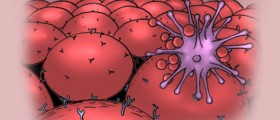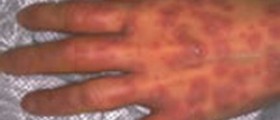
It is very important to correctly and promptly diagnose the presence of herpes simplex encephalitis. Any delay in the diagnostic procedure can increase the rates of morbidity and mortality. For this type of disease, a period of time in an intensive care unit might be required. It is now common for antiviral treatment to begin before the final diagnosis of herpes simplex encephalitis.
Therapy and treatment
Antiviral therapy can take a pharmaceutical approach. This will mean the administration of drugs such as acyclovir and vidarabine. These drugs will play a vital role in the treatment process, and should be administered even if a final diagnosis of herpes simplex encephalitis has not been made. Other drugs that might be used in the wider context of related virus types include ganiclovir and ribavarin, for the cytomegalovirus and the arbovirus encephalitides respectively.
As indicated earlier, prompt or even pre-emptive treatment is absolutely vital when it comes to herpes simplex encephalitis. This is because the disease can be potentially serious and even life threatening in many cases. As soon as an etiologic agent of the herpes simplex encephalitis virus is identified, therapy should be focused on this agent as soon as possible.
An increase in the level of intracranial pressure might occur as a result of this virus. This can be managed in the intensive care unit through the employment of gentle diuresis, mannitol and hyperventilation. In some cases, there might be a need for surgical decompression. This will be necessary if there is an impending uncal herniation. It is also theorized that patients suffering from cerebral edema might benefit from a craniectomy.
EEG
In the case that seizures occur, observation should take place using electroencephalography. Phenytoin and valproic acid might also be administered. Benzodiazepines can also be used, particularly when it comes to status epilepticus. Patients might require long term anticonvulsant therapy if seizures persist.
It is important to focus on prevention when it comes to this type of viral infection. Preventive measures include the removal of stagnant water, the administration of insecticides and vaccines. There are vaccines that can control eastern equine encephalitis, western equine encephalitis and Venezuelan equine encephalitis. There are also vaccines available for Japanese virus encephalitis, tick borne encephalitis and many types of arbovirus. About one hundred and twenty million children have been given these viruses since the year 1989. Factory workers at risk of contamination have also been known to receive the virus.

















Your thoughts on this
Loading...